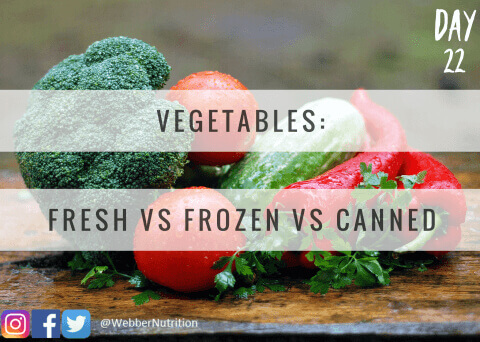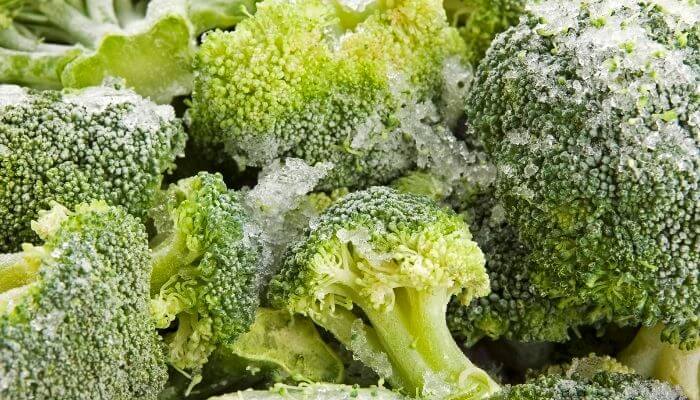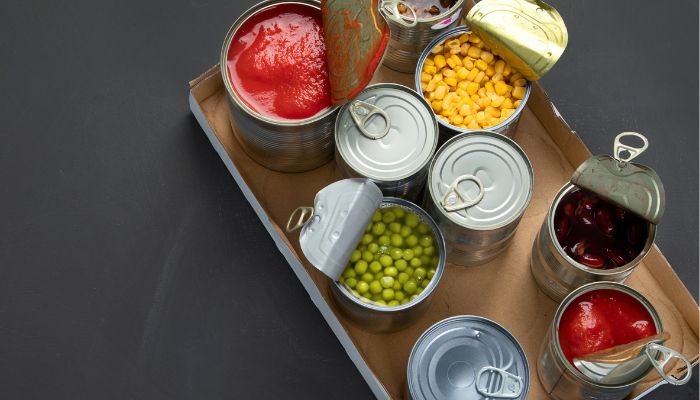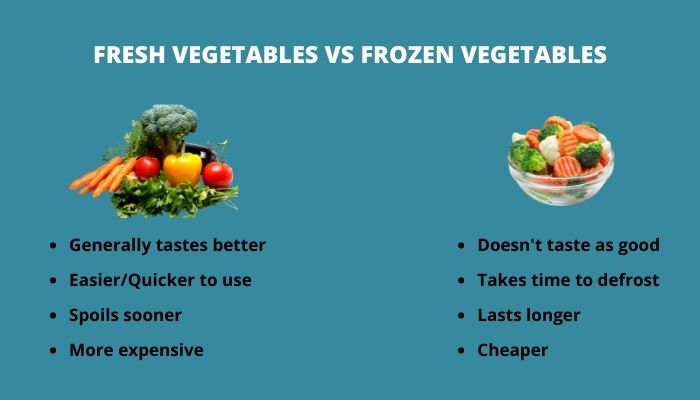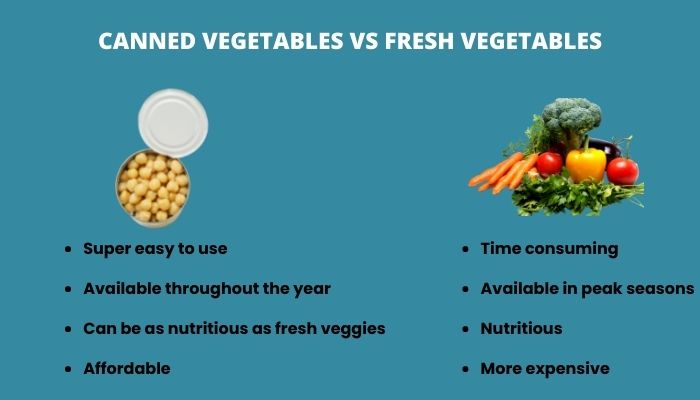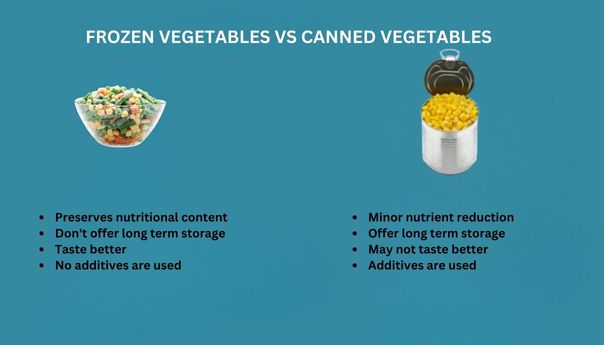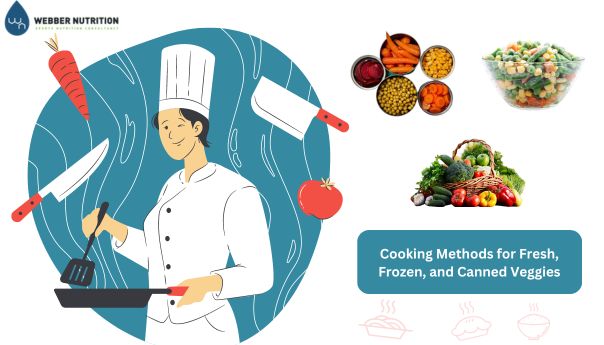Nutrition Advent Calendar – Day 22
As I planned the topic on fresh vs frozen vs canned Vegetables, I noticed last week that Examine.com had published an evidence-based article with the same intention, so I’m simply going to summarise the key points from this, as they have done a great job!
Plenty of fruits and vegetables in your diet are crucial and highly recommended as they provide nutrients vital for the health and maintenance of your body. But have you ever wondered which is better- fresh, frozen, or canned?
Here in this guide, we will briefly study each produce, have a healthy debate on fresh vs frozen vs canned vegetables, and learn the pros and cons of each variant. By the end of this informational content, you’ll be able to decide which option is most suitable according to your health needs and will help you decide what to choose for the next time you visit a supermarket.
Let’s break it down one by one.
Fresh Vegetables
Vegetables are a fundamental part of modern agriculture, full of essential vitamins, minerals, and antioxidants. Fresh Vegetables are an important part of a healthy diet that provides abundant health benefits and are highly recommended for daily consumption.
However, environmental factors such as soil quality, season, weather, farming methods, and storage conditions/duration can influence nutrient content.
Frozen Vegetables
Frozen vegetables are an affordable and convenient alternative to fresh vegetables that can be prepared with minimal effort. The most prominent benefit of frozen vegetables is that they are available year-round, meaning you can have your favourite veggies on your table regardless of whether they’re in season or not.
The vegetables are typically blanched in hot water for a couple of minutes before freezing. This process may often lead to a significant decrease in heat-sensitive nutrients. Freezing the veggie further may affect the nutritional value of certain vegetables and specific nutrients differently.
So, can frozen vegetables be a healthy addition to a well-rounded diet? Let’s explore the food science behind this in the upcoming sections.
Canned Vegetables
Are canned vegetables healthy? Yes, it is. Canning vegetables is an effective way of preserving vegetables for future consumption. Canned & jarred vegetables may undergo slightly more processing; however, their nutrient content is still very valuable compared to fresh and frozen vegetables.Canning vegetables is an effective way of preserving vegetables for future consumption. Canned & jarred vegetables may undergo slightly more processing; however, their nutrient content is still very valuable compared to fresh and frozen vegetables.
As well as for blanching, they can be preserved in sugary syrups and contain other added salt, salts and other additives that carry their own health risks, e.g. increased cancer risk. Canned vegetables can be a convenient and low-maintenance option for incorporating fruits and vegetables into your diet.
Several forms of processing can also break down essential nutrients i.e. nitrates (from beetroot), almost entirely.
Fresh vs Frozen vs Canned Vegetables: Comparison
Frozen Vegetables vs Fresh Vegetables
Fresh veggies undoubtedly taste the best. But the good news about fresh ones is that the nutritional value of the vegetable is not really reduced during the freezing or canning process. Yes, you read that right!
Frozen vegetables can, in fact, be part of a healthy eating plan. But, if possible, it is better to eat fresh vegetables. The blanching process carried out before freezing vegetables is to inactivate enzymes that may cause unfavourable changes in colour, smell, and nutritional value. Blanching can release and break down some vitamins and minerals but is unlikely to significantly worsen the quality of the produce.
So the question of the hour is, are frozen vegetables bad? No, they certainly are not. They retain their nutrients from when they were picked. Some frozen veggies like frozen peas are better than their fresh alternative.
How you cook them may greater impact their nutritional quality, but that’s the same with fresh vegetables. So choosing fresh or frozen vegetables is entirely up to you. However, it would be best to consider a few things when preparing them.
Canned Vegetables vs Fresh Vegetables
In some cases, the nutrient content of canned fruits and vegetables (like canned tomatoes) may be higher than that of fresh produce. Canned veggies are super easy to use and are less time-consuming because, unlike fresh veggies, you do not have to go through the peeling and cutting process.
Canned products are readily available throughout the year, regardless of the seasons. If preserved under favourable circumstances, they are a valuable source of nutrients. However, it’s important to be mindful of added sugar and salt in some canned products.
Frozen vs. Canned Vegetables
When choosing between frozen and canned vegetables, the following factors will guide you to the most suitable.
Nutritional value: Both frozen and canned vegetables offer essential nutrients. Freezing preserves nutritional content through blanching. Canning involves heating, causing minor nutrient reduction. Optimal processing enhances canned vegetables’ nutritional value.
Convenience: Frozen veggies are available year-round, require minimal preparation, and can be easily used in dishes. Canned veggies are pre-cooked, require no additional cooking, and offer long-term storage.
Texture and Taste: Frozen veggies retain natural texture and flavour better. Blanching in the freezing process preserves crispness. Canned veggies may have a softer texture due to the preservation process and added liquid which is also flavourful. Preferences for texture and taste vary.
Sodium and Additives: Canned vegetables may have higher sodium levels due to added salt and preservatives. Reading labels and choosing low-sodium options can address this concern.
Versatility: Frozen veggies are an incredibly versatile ingredient that can elevate various dishes, from stir-fries to soups. They retain nutrition when cooked or steamed. Canned veggies are quick for salads, toppings, or cooked dishes with reduced cooking time due to pre-cooking.
The choice between frozen and canned vegetables depends on personal preferences, nutritional needs, and specific meal requirements. Frozen vegetables often offer better texture and taste, with fewer additives and the retention of nutrients through freezing. Canned vegetables provide better convenience and have a long shelf life. They are already cooked so that we can use them immediately.
Cooking Methods for Fresh, Frozen, and Canned Veggies
How you cook food can influence the nutrient availability of certain foods. This helps release nutrients from the food for the body to absorb them more easily.
Some water-soluble nutrients (e.g. B vitamins & vitamin C) may be lost during the cooking process of fresh vs frozen vs canned Vegetables, but this will not destroy the quality of the food. Cooking fresh, frozen, or canned foods enhances their antioxidant capacity, particularly beta-carotene from carrots, lycopene from tomatoes, and lutein from broccoli and courgette.
Fresh veggies are usually cleaned with water, peeled off, and cut into pieces before cooking. It is generally best to keep cooking time, temperature, and the amount of liquid to a minimum. Hence the healthiest way of cooking fresh veggies is steaming than boiling.
Frozen vegetables taste better when roasted in the oven or cooked on the grill. Frozen versions should not be exposed to heat and water for longer because doing so can destroy the nutritional value of the vegetable and create a soggy mess.
On the other hand, to cook canned veggies, you can blanch the vegetable to remove the canned taste. And since canned veggies are already cooked in the container, they just need to be heated.
BONUS CONTENT AHEAD!!
Facts About Canned and Frozen Fruits & Vegetables
So here’s the bonus content for you all. Let’s know some interesting facts about canned and frozen fruits & veggies:
- Frozen and canned vegetables must be processed accordingly in the few hours of their harvesting. This is done to preserve the nutrients.
- Depending upon the item, freezing or canning may preserve the nutrient value or even increase it.
- Studies have proved that recipes prepared with canned foods have similar nutritional values to those with frozen or fresh.
Take-Home Messages
How you cook your vegetables, whether they’re fresh, frozen, or canned, will determine the overall nutrient quality. Cook your vegetables with minimal water & oil to retain more nutrients e.g. steam/slow cook/casserole/roasted.
Choose the vegetables that are going to get you to eat them. Eating any form of vegetables means you’ll obtain some nutrients. Do what works for you!!
Also, learn about the usefulness of other processed foods from our article Is Diet Coke Better Than Regular Coke.
If this blog on fresh vs frozen vs canned vegetables was resourceful, do not forget to drop your comments down below!
FAQs:
If frozen vegetables are stored properly and cooked, they are safe to eat every day. When choosing frozen vegetables, pay attention to the ingredients list. Make sure you choose plain varieties without salt or sauces, and store and cook them properly to ensure they are safe.
The potential disadvantages of frozen vegetables are nutrient loss like vitamins B and C when cooked, texture changes, added ingredients, and potentially flavour differences.
Yes, frozen vegetables can be as healthy as fresh ones since they retain their nutrients through freezing. The nutritional differences between fresh and frozen vegetables are generally minor. The addition of fresh and frozen vegetables to your diet is a good idea for variety and optimal nutrition.
Frozen vegetables can typically be stored in the freezer for 8 to 12 months without losing quality or nutritional value. To maximize frozen vegetables’ shelf life, storing them in a freezing compartment at 0°F (-18°C) or below is essential as it helps to prevent bacterial growth and maintain their overall quality.
Yes, you can juice frozen vegetables. Freezing vegetables helps preserve their nutrients, making them suitable for juicing. Thaw them before blending, use a juicer or blender, consider adding other ingredients for flavor, adjust the quantity of liquid, and consume the juice immediately or store it for a short period.
Freezing canned fruits is not recommended as it can affect their texture and taste due to the preservation process they undergo. It is better to refrigerate leftover canned fruits for short-term storage or use fresh or frozen fruits if you want to freeze them for extended periods.


